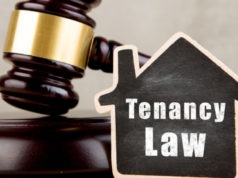Does it make sense to buy a property, by registering it with a single owner or with multiple owners? We look at who can be joint owners to a property and its implications
Home owners are often ignorant about the implications of buying a house property in single name, instead of joint names. One of my colleagues had bought a flat in his name before marriage. After marriage, the EMI was serviced by the couple, in equal parts. However, he was shocked to learn that his wife could not claim the income tax benefits on the home loan.
Who can be a joint owner?
There is no law that governs who you can add as joint owner. It can be a close relative (spouse, parents, children, brother or sister), your partner in business, or even friends.
Even if you are financing the property alone, it makes sense to add a close relative, like spouse or children if you are married, or parents in case you are a bachelor. A person, who is added as a joint owner in the agreement, need not contribute towards the purchase of the property.
Taking a home loan jointly
While giving a home loan, lenders insist that the joint owner be included as a co-borrower. Lenders tend to favourably consider home loan applications, where the co-borrower is a close relative, like spouse, parents or children. A majority of the lenders do not entertain loan applications, where the co-borrower is not one of these close relatives. As the joint owner has to join the applicant as a co-borrower, you may not get a home loan if the joint owner is a friend, partner, or a brother or sister.
Smooth succession of the property
As most of the residential properties purchased nowadays, are apartments in housing societies, it is better to buy in joint names. In case anything happens to one holder, the society will generally transfer the flat in the name of the remaining joint holders, without insisting on a probate or a no-objection certificate from the other legal heirs.
Income tax benefits of joint home loans
The income tax benefits, whether for principal repayment of a home loan under Section 80C or for interest on a home loan under Section 24b, can only be claimed by the owner or the joint owner of the house. Consequently, the benefits of a home loan cannot be claimed by you, unless you are an owner of the property, even if the loan is being serviced by you.
Buying a house today, may require a minimum home loan of Rs 50 lakhs. The interest on this loan would be around Rs 4.75 lakhs per annum @ 9.50%. In case the house property is used for self-residence and is owned and being serviced by you only, you will only be able to claim Rs 2 lakhs and the tax benefit for the balance Rs 2.75 lakhs will be lost. However, in case the same property is purchased in joint names and the loan is serviced by both the holders, both of you can claim the tax benefit of Rs 2 lakhs each, on the interest payment.
Similarly, for repayment of the principal home loan amount under Section 80C, if the property is jointly owned and the home loan is equally serviced, then, both of you will be able to claim this benefit of up to Rs 1.5 lakhs each, presuming you do not have any other investment or expenditure qualifying for Section 80C.
(The author is a tax and investment expert, with 35 years’ experience)
Source:Housing.com










